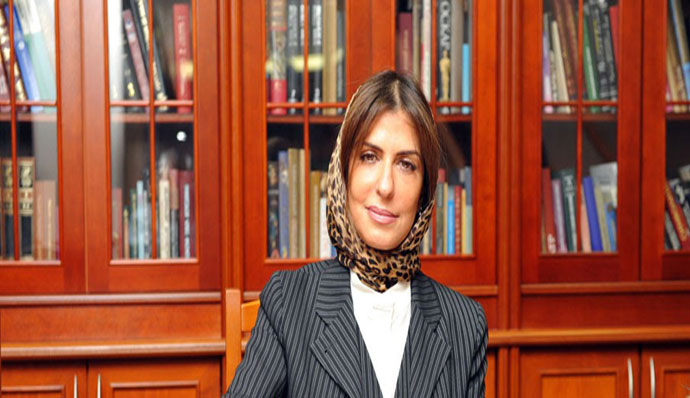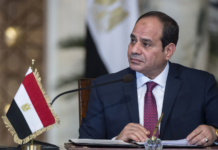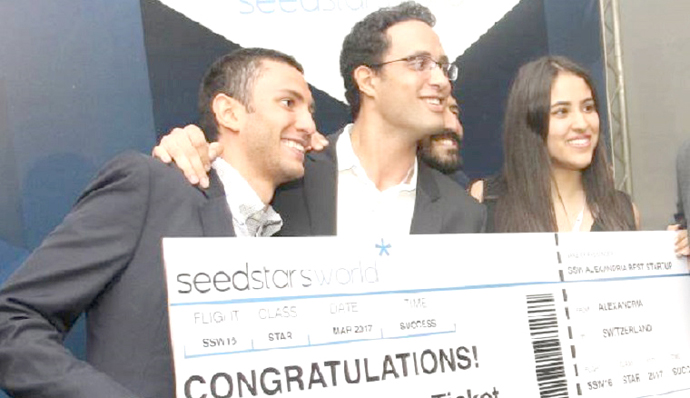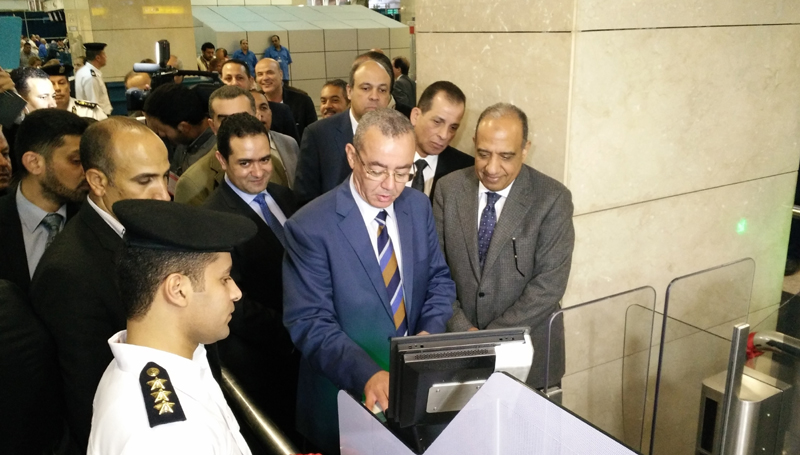On Thursday 13th October, The Business School at the American University in Cairo hosted HRH Princess Basmah Bint Saud for a public lecture for The Untapped Economic Power of Women Entrepreneurs, to be a guest speaker at the Moataz Alfi Hall.
A panel of discussion was held with other key speakers, Jorg Schimmel, Deputy Country Director Officer in Charge, UN Women Egypt, along with Dr. Maha Elshinnawy, Director of the Goldman Sachs 10,000 women programme, AUC school of business, Ahmed El Alfi Founder and Chairman of Greek Campus, moderator, Dina H. Sherif, Director centre for Entrepreneurship, AUC School of Business.
HRH tackled significant issues during the lecture; through the main focus of the lecture was women entrepreneurs, Princess Basma addressed several keys issues.
She started her speech talking about equality and freedom, and wealth distribution in the Middle East; she stressed on the importance of equality, not only between men and women, but about giving equal opportunities for developing various areas in any Arab country. She explained that sometimes much focus is given to developing specific sectors in a country and other sectors are left underdeveloped. Education is one of the main pillars Princess Basma regarded as a vital sector that needs much development in the Middle East. She stressed on the importance of teaching ethics within the various curriculums; she added that technology and social media are playing major roles in our lives today and they must be fully incorporated within the education system in order to reach an efficient education system.
Ahmed El Alfi also talked about the importance of establishing an effective technologically based education system in Egypt. “We cannot depend on the government to fix a system she was not able to fix for many years,” he said. “We need to plan for a new education system based on using technology,” added Alfi.
Tackling the issue of women and their contribution within the workforce in the Middle East, Karim Seghir, Dean of the Business school at the American University in Cairo stated that women’s contribution to the workforce in Egypt counts as 26%, which does not even match the percentage of educated women in Egypt. He pointed out that the IMF estimated that having an equal number of women to men in their labour force could increase economic growth by 34 per cent in Egypt.
HRH talked about missing economic opportunities for women in the Middle East; key speakers addressed the main challenges that female entrepreneurs face in Egypt; one of which is financing difficulties; Dr. Mona El Eryan, Egyptian entrepreneur, owner and founder of Nefertari, 100% natural handmade body care products, talked about her business experience noting that women do not have equal opportunities in accessing finance in Egypt; she added that she had really tough time getting a loan for her project. “Banks really take high interest rate; I believe that there must be other entities to help entrepreneurs getting loans, without being burdened by high interest rates.” Dr. Mona said. Related to decision making, Maya Morsy, Head of Egypt’s National Council for Women, stated that there are significant plans to direct female entrepreneurs into the Egyptian market. Morsy talked about “One Village One Product Initiative”, which is based upon the concept that each town/district should have at least one competitive product that is ‘distinctively its own’ to offer to the market. In other words, communities selectively produce goods with high added value. One village produces one competitive and staple product as a business to gain sales revenue to improve the standard of living for the residents of that village. The reasons behind this initiative are to minimise depopulation of often rural areas, find and nurture products/industries that could positively affect each region, and prevent economic dependency upon government.
Maya also tackled the issue of workplace sexual harassment; she noted that the Egypt’s National Council for Women is giving close attention to this matter.
Concerning promoting success stories Morsy said that this month will witness the promotion of many success stories through the website of the Council, and a TV campaign will also be launched soon. One of the most famous successful stories is “Pink Taxi”, which help women become taxi driver. Dr. Maha Elshinnawy, Director of the Goldman Sachs 10,000 women programme, also supported this media campaign and said that her programme is constantly supporting success stories written by Egyptian females, who really need much focus.
HRH, Princess Basma and key speakers agreed upon important steps that any female entrepreneur must follow in order to reach success. They said that there must be strong decision making within the Arab world to support female entrepreneurs and to fight the unconscious belief present within the Arab countries, that women cannot do it.
First, a female entrepreneur must be empowered by strong governmental decision making; second, an entrepreneur must believe she can reach success; third, be ready to accept failure is one of the main elements to achieve success.
Fourth: Critical thinking, problem solving and good presentation skills are inevitable for an entrepreneur. Princess Basma, also talked about her success story, as an entrepreneur who was able to establish her own business. “I was determined to have my own business that I did not inherit from my family,” HRH said.
It is to be noted that HRH, founded a chain of restaurants in Saudi Arabia and she is planning to expand these into Britain. In 2008, she also founded a media firm, Media Ecco, in addition to catering firms, which she is also planning to expand.















